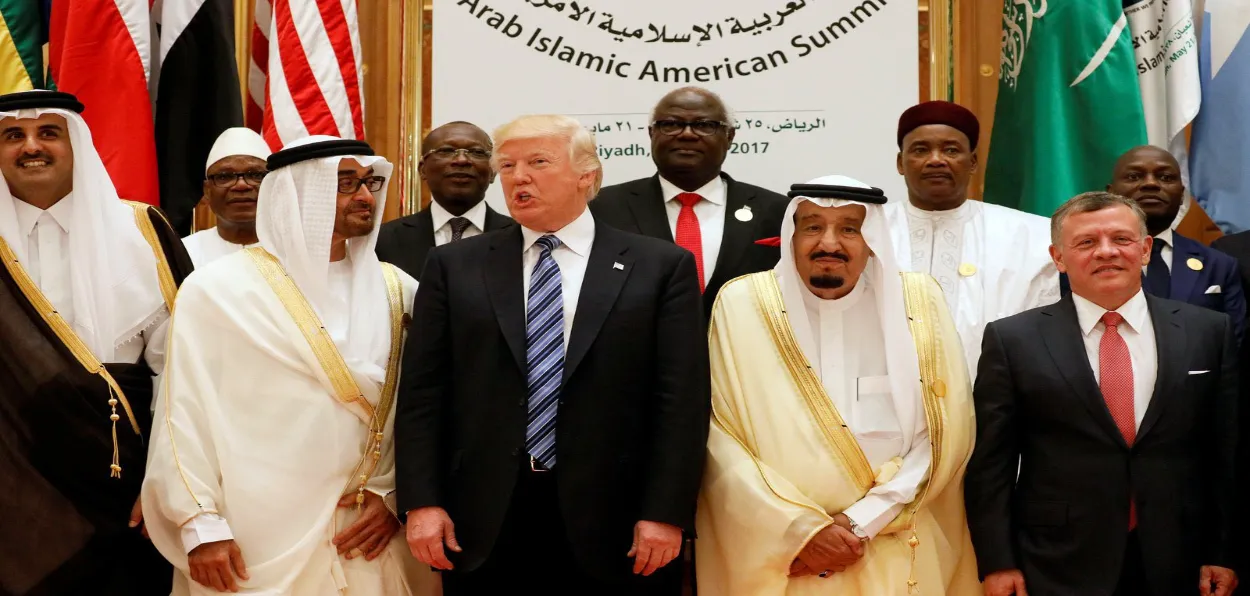
 Aditi Bhaduri
Aditi Bhaduri
As newly elected Donald Trump is set to take charge in the US, the uppermost question is - how will his administration deal with the two major conflicts raging in the world currently- Israel’s war in Gaza and Lebanon, and the Ukraine crisis?
The Middle East, especially, is bracing for Trump 2.0 because, in his earlier tenure, Trump had left behind a mixed legacy. He had brought America's focus back to the region after the previous Obama regime's pivot to Asia which diminished US focus on the region.
Trump 1.0 and his advisor and son-in-law Jared Kushner had close links with Israel, and Gulf countries like Saudi Arabia, UAE, and Bahrain. It was under their watch that the Abraham Accords - the normalization of relations between Israel on one hand and the UAE, Bahrain, and Morocco on the other took place.
While no steps were taken to realize the long-mandated two-state solution for the Palestinians, Jared Kushner helped convene a significant investment summit for Palestinians.
Under Trump, the US Embassy in Israel shifted to Jerusalem, whose status is disputed under international law, proclaiming it to be the eternal capital of Israel. Israeli settlements in the Palestinian territories, which also contradict international law, were highlighted.
It was also Trump who had pulled out of the JCPOA or the more popularly known Iran nuclear deal, which Iran had negotiated a year earlier with the P5 and the EU. Tensions ratcheted up between them with the infamous assassination of Iranian general Qassem Soleimani in Baghdad. Yet, Trump took care to see that escalation remained within the limited threshold and no large-scale war broke out.
Trump 1.0 had also assisted the Saudi-led coalition against the Iran-backed Houthi rebels in Yemen, which eventually led to the coalition extricating itself from the conflict there, and to large-scale destruction and devastation of the country and further emboldening and consolidating the power of the Houthis in Yemen.
So what is expected from Trump 2.0 in the Middle East?
Trump has picked Marco Rubio, a staunch supporter of Israel as his Secretary of State. He has picked Elise Stefanik, another pro-Israeli politician as US representative to the UN. He has picked yet another staunch Israel supporter Mike Huckabee as US Ambassador to Israel. Huckabee has spoken against the two-state solution. Steve Witkoff, whose foreign policy credentials are not known, but who had supported Trump's Israel policy during his last stint, has been named US Special Envoy for the Middle East.
Given these nominations, it's tempting to believe that Trump's Middle East policy during his new term will again be staunchly pro-Israel. Certainly, the Israeli Right has welcomed all these selections. However, such a prognosis can be simplistic because other variables have come into play.
One, major reason for the failure of Kamala Harris and the Democrats in the recent elections was due to their inability to implement a ceasefire in Gaza. Some of the Democrat supporters and a major section of Muslim votes were cast in favor of Trump and the Republicans. Trump was also reported as saying that while he understood Israel’s imperatives, the visuals from Gaza were making for bad optics and advised Netanyahu to wind up the war soon.
No doubt, this will be a pro-Israel administration but it will also have to be mindful of sections of its constituency. Therefore, while Palestinian statehood may continue to be elusive, we will probably see a ceasefire at least in Gaza once the administration takes over, with a possible multilateral peacekeeping force there.
Next, China has already been named as the biggest challenge for the new US administration. Therefore, a large part of its efforts and focus will be directed against it. However, in the interim between the two Trump administrations China has been widening its footprint in the region. Currently, a substantial part of the energy and other trade between China and Saudi Arabia and the UAE, two of America's closest Gulf allies, are conducted in the Chinese yuan. Besides, China's greatest achievement in the region has been the 2023 truce it brokered between arch-rivals Iran and Saudi Arabia. There has also been a considerable thaw in relations between Iran and the UAE. Neither of these two Gulf kingdoms has taken any overtly anti-Iran position in the current confrontation between Iran and Israel, even warning against any attacks on Iran.
Therefore, much will depend on Saudi Arabia and how it will navigate the Gaza conflict, ties with Iran, and the Iran-Israel confrontation. Trump had tried to make Saudi Arabia a party to the Abraham Accords too. However, given the size of the kingdom, and most importantly its status as custodian of Islam's holiest sites, it has taken a deliberately slower and more careful approach. While it engaged with Israel in track 1.5 and track 2 dialogues, it has not yet established diplomatic ties with the Jewish state. Yet, it allowed direct Delhi-Tel Aviv flights over its airspace, all under the watch of Trump 1.0. Under the Biden administration, it agreed to the India- Middle East Economic Corridor but then the Hamas attacks in Israel in October 2023 occurred and IMEEC had to be put on the back burner with no end to the conflict in sight yet.
At the same time, Trump can be expected to take a tough line on Iran, even as the EU has imposed sanctions on it yet again for its human rights abuses, nuclear proliferation activities, and military support of Russia in its war against Ukraine. Yet, he will probably also work to avoid any major escalation between Iran and Israel with the potential to turn into a larger regional war.
Finally, another variable will be what the Trump administration does regarding Ukraine, and Russian oil entering the international market. The Saudis will be watching this closely. However, with the outgoing administration of President Joe Biden allowing Ukraine a free hand in using NATO weapons to strike deep inside Russian territory, prompting Russia to revise its nuclear doctrine, Ukraine may take precedence over the Middle East in the immediate future.
The author is a senior analysts on affairs of Middle East and Central Asia
